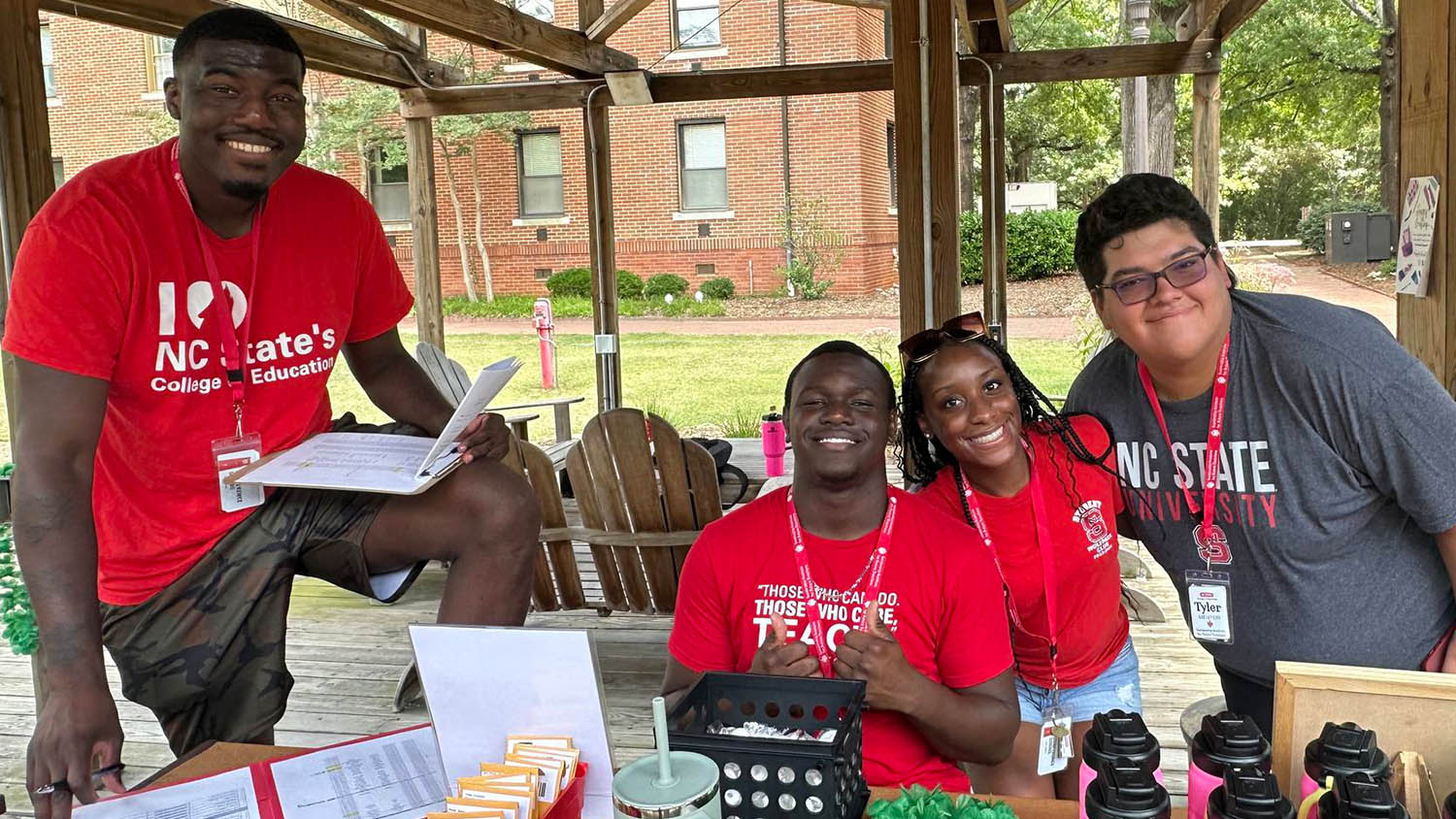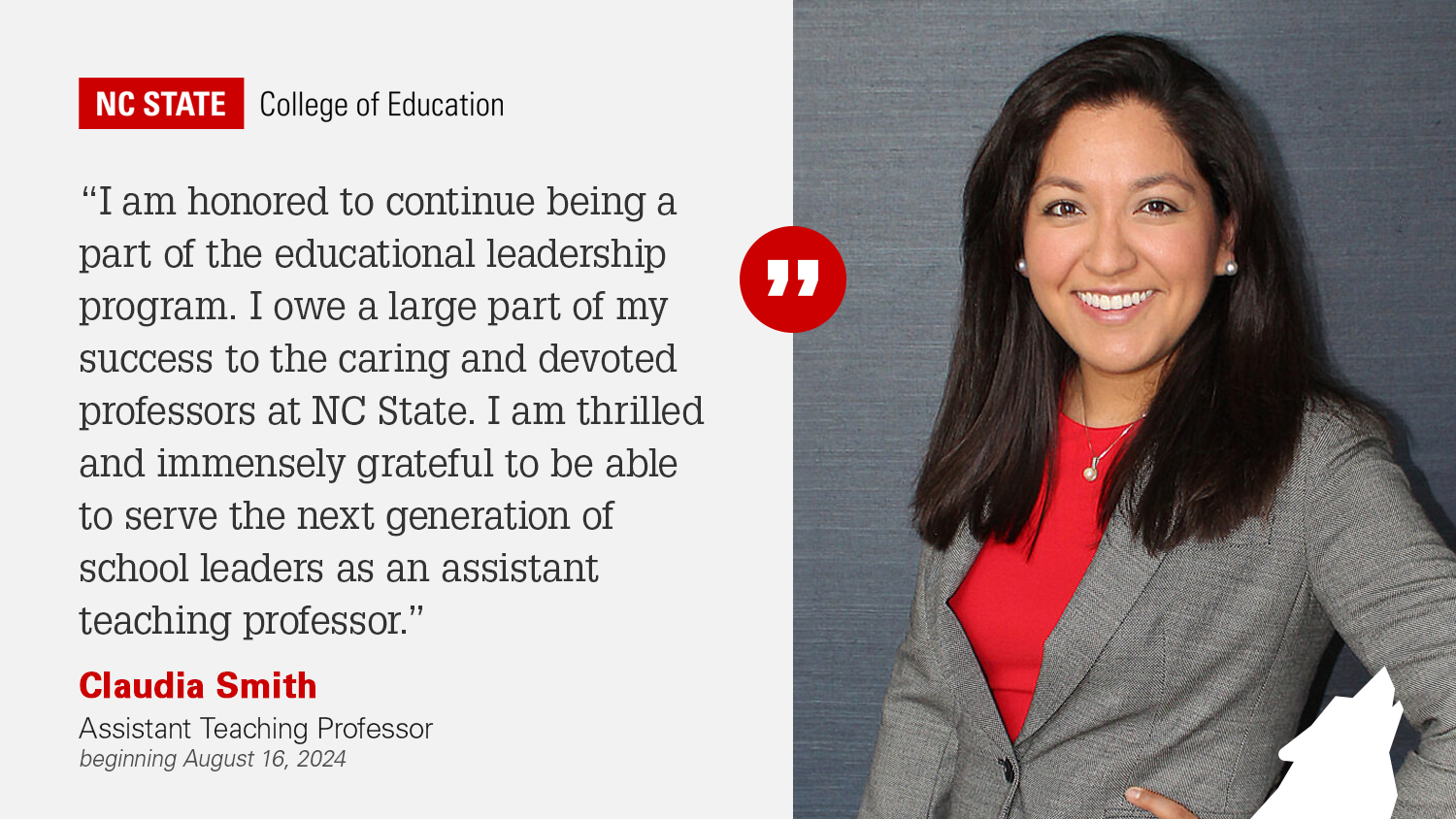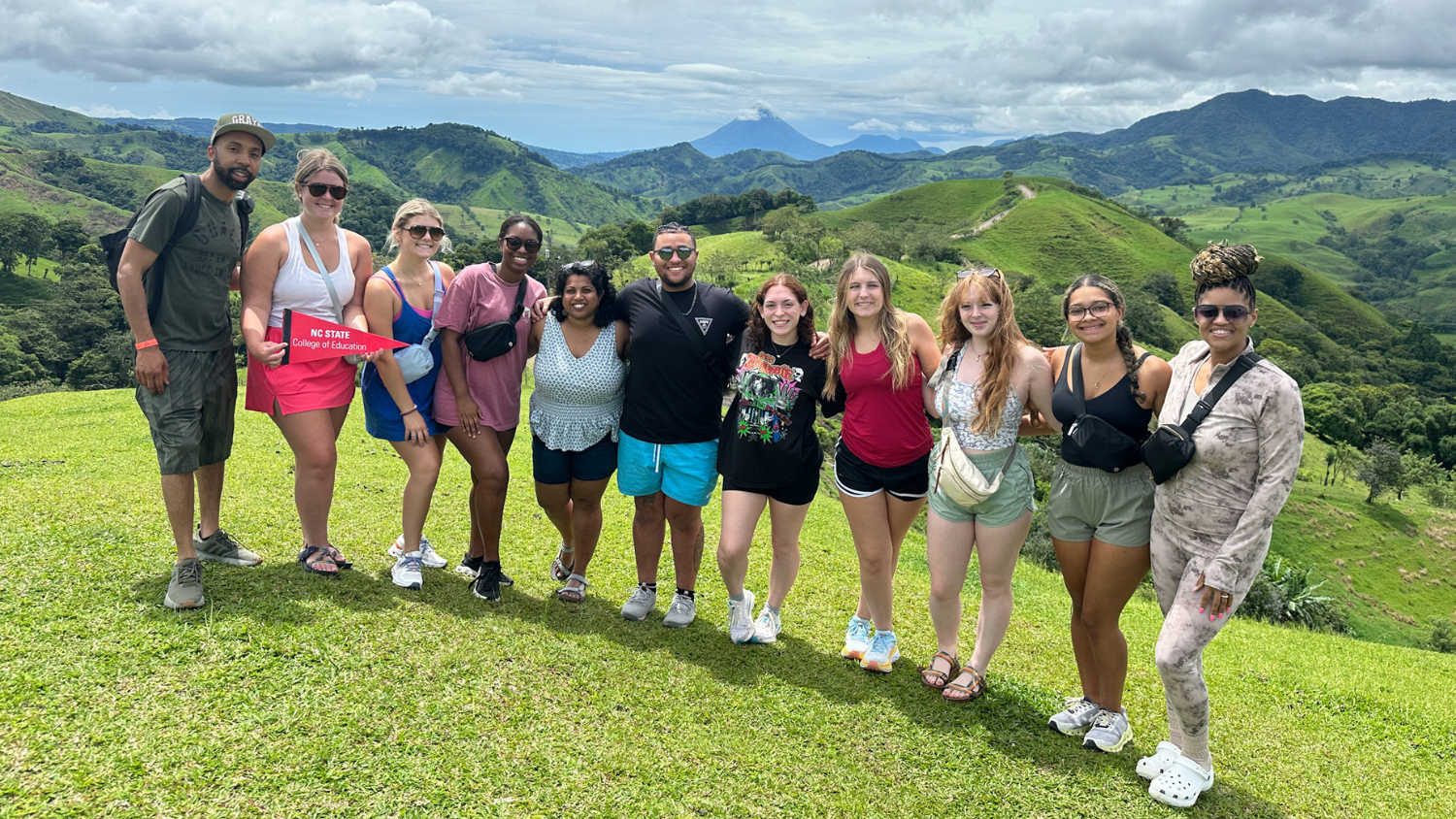Pack IDEAs Faculty Spotlight: Crystal Chen Lee, Ed.D.
In each edition of Pack IDEAs (Inclusion, Diversity, Equity, and Access), a newsletter released by the NC State College of Education Change Agent Task Force, we highlight faculty, students and alumni who have expertise and experiences that align with advancing diversity, equity, and inclusion (DEI) within the college. In becoming an anti-racist college community, we must deepen our commitment to creating and sustaining a healthy teaching and learning community that uplifts the humanity of all people, but especially Black, Indigenous and people of color, who due to structural inequities are marginalized in education and society. The spotlight feature offers a counternarrative that celebrates and showcases the brilliance of individuals within our college community.
Crystal Chen Lee, Ed.D.
Assistant Professor of English Education
Department of Teacher Education and Learning Sciences
How long have you been a faculty member at NC State? I have been a faculty member at NC State for 3.5 years.
Why are diversity, equity, and inclusion in education important to you? As a child of immigrant parents from Taiwan, diversity, equity, and inclusion has not only been important to me as a scholar but as a second-generation Asian American woman. Because of my lived experiences, my teaching and research is centered on how students from marginalized populations are able to amplify their voices. As an Asian American student growing up in the United States, I never had a K-12 educator that looked like me nor did I read a book in K-12 schooling that represented my cultural identity. I spoke one language, English, at schools, and spoke a mix of Mandarin Chinese and English at home. I lived in two worlds, and though I loved both worlds, I wondered what it meant to bring my home world into my schooling world.
Therefore, as an educator, it is important for me that all students are able to bring their full humanity to the classroom and to their work. I believe that when students are invited to bring in their multiple languages, cultures and experiences into our classrooms, DEI will become both a framework and foundation to the teaching and learning happening in educational spaces.
Are you currently conducting research around the area of diversity, equity, and inclusion? If so, tell me a little about your research. The driving force of my scholarship and research has been my passion for educational equity. Within this passion, my research agenda focuses on two strands: literacy and teacher education, with an intersection of community engagement and marginalized populations in each strand. The first strand focuses on how literacy, particularly critical literacy, can lead to increased literacy improvement and community engagement, particularly for marginalized students. Specifically, this strand examines how literacy is not separate from youth advocacy and leadership, but is rather intertwined.
The best example of this strand is my research project, the Literacy and Community Initiative (LCI), a collaboration between the NC State College of Education and the Friday Institute for Educational Innovation (FI), that partners with community-based organizations (CBOs) to examine and empower historically and currently underserved youth voices. With Co-Principal Investigator Jose Picart, Ph.D., this interdisciplinary project amplifies youth voices through student publications, advocacy and leadership.
What are you hoping to accomplish as a result of your work, and how do you expect it to impact the field of education and learners? Our research from LCI has shown that the narratives of students in our community-based organizations are counternarratives that schooling institutions must pay attention to. For example, we have analyzed the narratives of Latinx immigrant students and how they have used their voices to advocate and lead their community. In other examples, we have analyzed the narratives of youth in urban communities in which they describe social inequities that affect their past, present and future lives. In all that we do, we hope that it is our student voices that will inform the practices and policies of the field of education. We must be better listeners to them.
Are there community projects and initiatives you are involved in related to diversity, equity, and inclusion? Tell me about those projects. Community extension and engagement outside of the university is the foundation to my research, scholarship and teaching. Because my work is centered around literacy, teacher education, community engagement and marginalized communities, I am passionate about research that supports outreach and extension. For LCI, our team teaches a 14-session curriculum and publishes a student-authored book in each organization per year. We partner with four wonderful youth-serving organizations:
- Triangle Literacy Council’s Bull City YouthBuild is a non-profit, nine-month education and leadership program in Durham for low-income youth who are not currently enrolled in school and unemployed. Through the program, youth gain academic and leadership skills through receiving their high school equivalency and building a house through Habitat for Humanity to give back to their community.
- Juntos NC works to help Latinx students achieve high school graduation and attend higher education.
- CORRAL Riding Academy is a non-profit organization that pairs rescued horses with adolescent girls in high-risk situations to provide healing and transformational life change through tutoring, mentoring and horse therapy.
- Refugee Hope Partners works with refugee youth and families in a holistic program that enhances local community partnerships through academic learning, mentoring, socio-emotional support and medical services.
We see our community-based organizations as strong community partners and we work together to develop a curriculum that meets the needs of students in their communities. In total, our team has put in over 200 hours of direct instruction in community-based organizations, served 60+ students and published seven books. We seek to learn from the diverse perspectives of our students.
What do you hope to teach future educators and scholar-leaders about equity and inclusion in education? How do you incorporate that into your instruction and curriculum? I hope to teach future educators and scholar-leaders that it is important to recognize the full humanity of students. In doing so, this means to interrogate and challenge our own curriculum, ask who is represented and not see texts as neutral. We need to ask, “Who is represented in the text? What voices are omitted and why?”
In committing to equity, we must also reflect on ourselves. One of my favorite quotes is from Paulo Freire, in which he says, “Those who authentically commit themselves to the people must re-examine themselves constantly.”
I adopt these stances in the two doctoral courses that I developed and teach here at NC State: Critical Theory and Public Engagement and Critical Literacy for Social Change. For me, education, and particularly, critical pedagogy, has the potential to become one of the most powerful tools in transforming schools, communities and institutions today. Furthermore, I also am passionate about pre-service teachers and ask my students to take this critical stance in order to recognize the full humanity of their students.
For other educators and teacher-leaders interested in learning more about social justice and anti-racist education, what are two resources you would recommend? I highly recommend Cultivating Genius: An Equity Framework for Culturally and Historically Responsive Literacy by Gholdy Muhammad, Ph.D., that argues for a four-layered equity framework — one that is grounded in history and restores excellence in literacy education. My pre-service high school English Language Arts (ELA) teachers read it this year, and their teaching and learning has really transformed!
I also had the privilege of working with Chandra Alston, Ph.D., and Michelle Falter, Ph.D., on a white paper for high school ELA teachers called “Becoming an Anti-Racist ELA Teacher.” In the white paper, we include five steps on becoming an anti-racist educator. You can find our white paper and related resources here: https://ced.ncsu.edu/news-new/news/anti-racist-ela/.
Is there anything else you’d like to share with the College of Education community? I am proud to be a faculty member of a university that seeks to learn and continue to grow in learning about anti-racist pedagogies. I am constantly encouraged by my colleagues and students.
- Categories:


